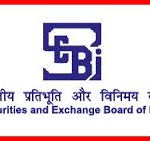SEBI eases norms to buy stressed assets
As part of the larger attempts of the government to resolve the massive bad debt issue, the Securities and Exchange Board of India (SEBI) on Wednesday relaxed norms for investors acquiring assets in companies with stressed assets and facing bankruptcy proceedings.
The board of the capital markets regulator has decided to exempt the acquirers from making open offers after buying stakes from lenders while including checks such as a three-year lock-in for new investors and mandating that such relaxation would have to be approved by a special resolution.
This would come as a big relief to both lenders and acquirers concerned about a possible open offer since sizeable stakes could change hands.
The regulator has decided to provide a similar exemption for acquisitions post the resolution plans approved by National Company Law Tribunal (NCLT) under the Insolvency and Bankruptcy Code 2016.
SEBI has decided to levy a ‘Regulatory Fee’ of $1,000 on each subscriber of offshore derivative instrument (ODI), which will have to be collected by the registered foreign portfolio investor (FPI) that issues the ODIs.
The regulator had recently floated a consultation paper to further tighten the norms for issuance of ODIs. It has also decided to “prohibit ODIs from being issued against derivatives except on those that are used for hedging purposes.”
SEBI Chairman Ajay Tyagi, however, clarified that the regulator did not intend to ban PNs, but would want the instrument to be used only to “test the waters” and long-term investors should prefer the FPI route.
Meanwhile, the regulator would soon float a consultation paper on easing investment norms for FPIs by expanding the list of eligible jurisdictions for grant of FPI registration and simplification of broad-based requirements and ‘fit and proper’ criteria.
The regulator is in the process of appointing a forensic auditor to look into the co-location matter of the National Stock Exchange (NSE), wherein it is alleged that certain brokers got preferential access to the exchange systems for trade execution.
The regulator is examining whether there was any connivance between NSE staffers and brokers. Interestingly, the regulatory move comes after NSE conducted its own forensic audit by Deloitte.
The regulator will also float a consultation paper on the equity derivatives segment to get market feedback on product suitability and the kind of investors participating in the derivatives space.
Incidentally, the cash to derivatives ratio in the Indian market is among the highest globally and the regulator in the past had expressed its concerns especially with retail investors getting into the segment.
Kindly send reply or comments on this topic to [email protected]
Source:The Hindu

sebi



